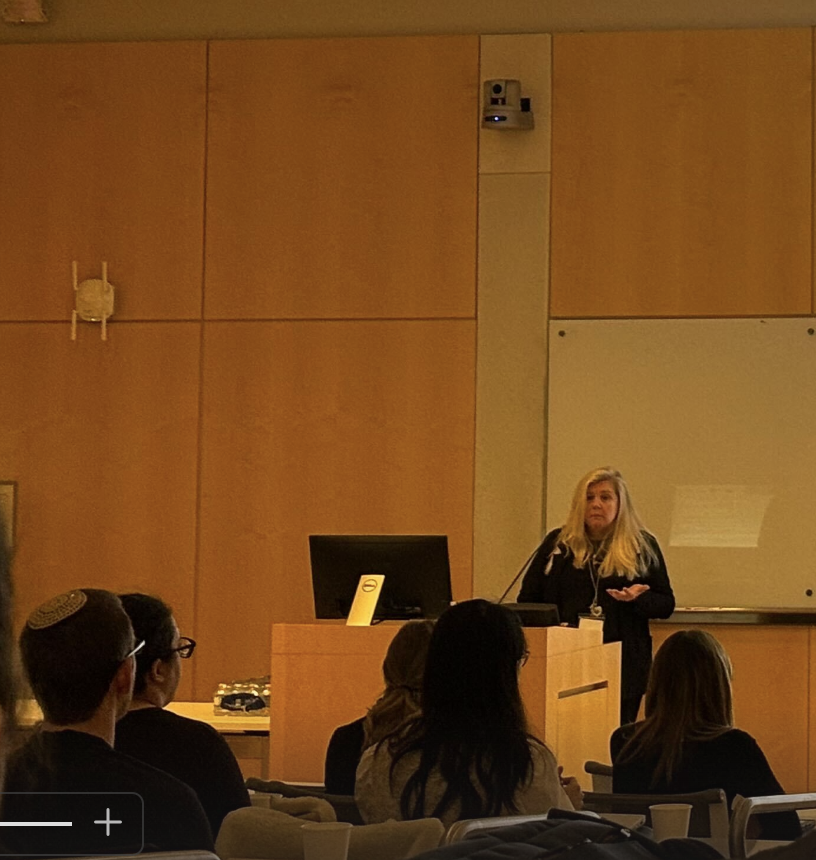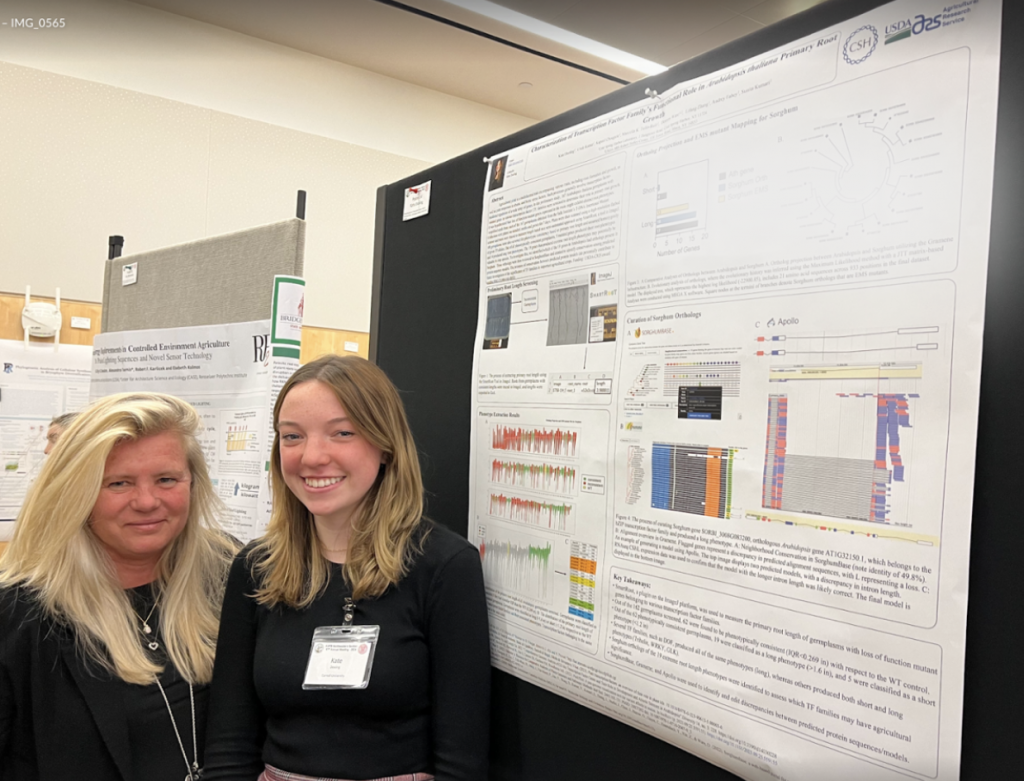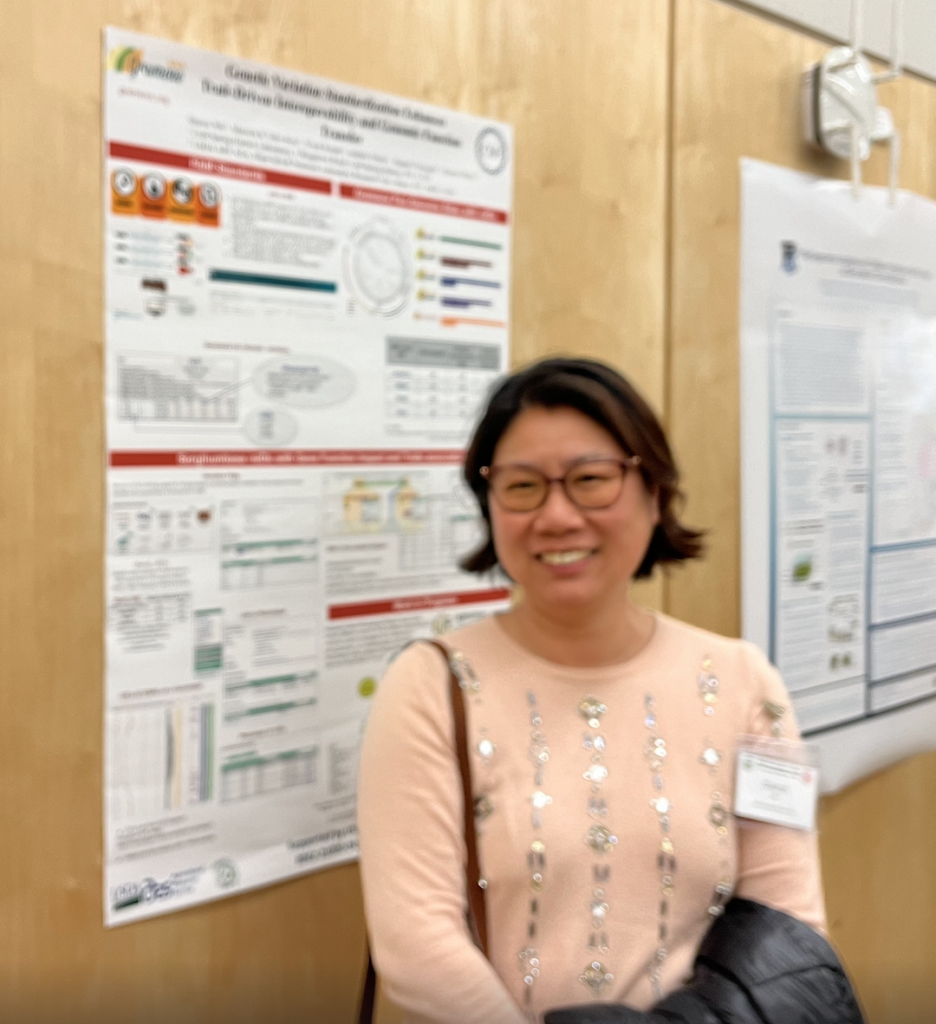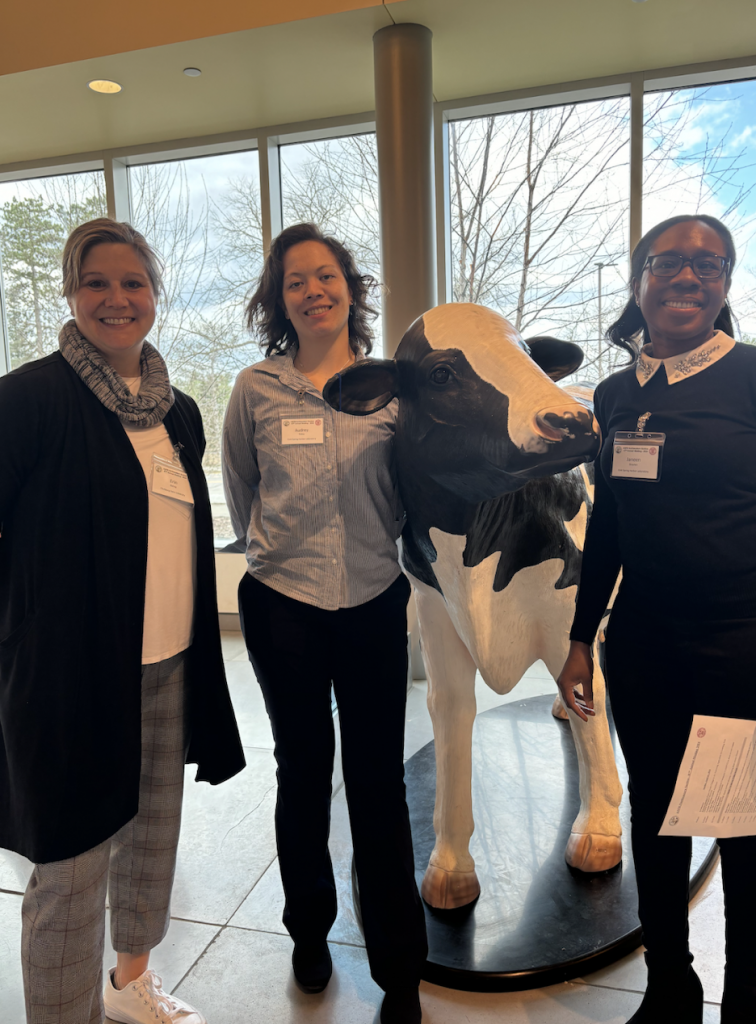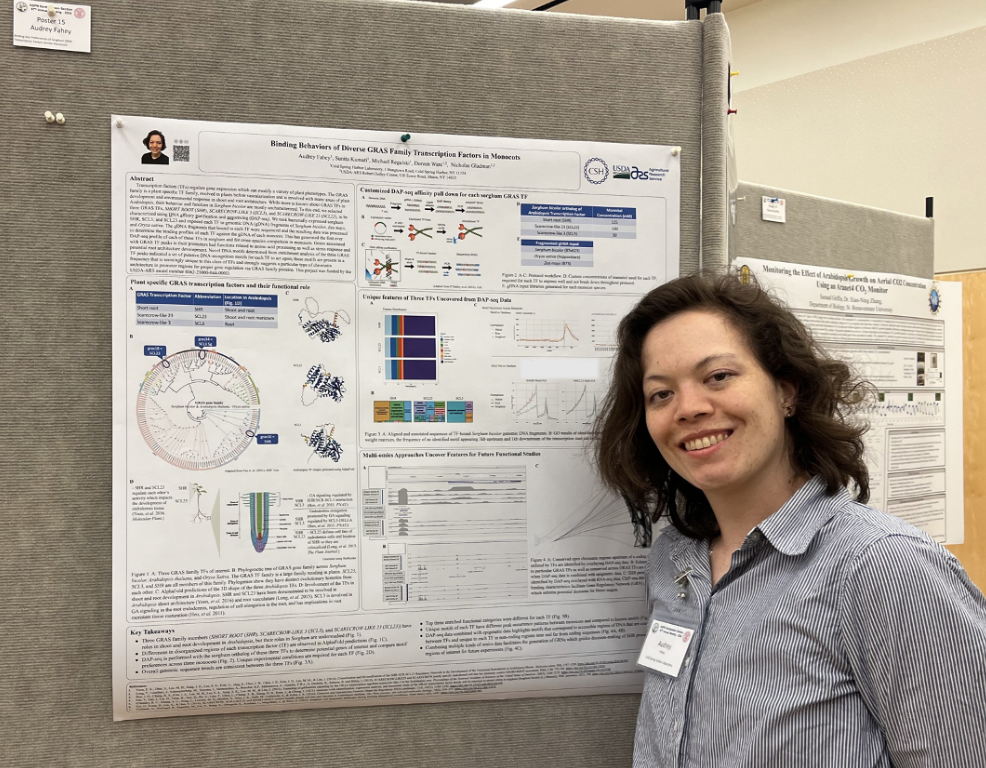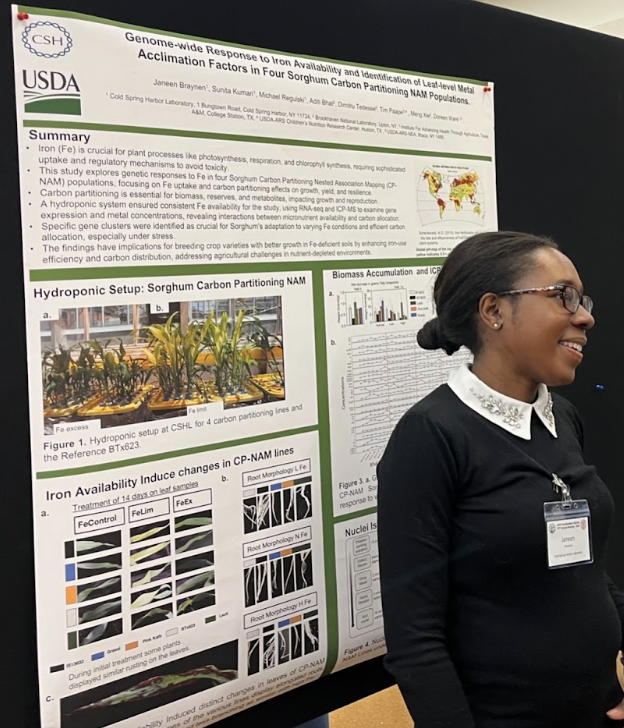The 87th annual Northeast Section American Society of Plant Biologists (ASPB NE) meeting was held at Cornell University in Ithaca, NY, from April 20th to the 21st. This conference gathered over 120 plant scientists from various career stages, featuring 20 scientific talks and 56 posters, all centered on recent research findings in plant biology. The event highlighted the diversity and excellence of research within the Northeast Section, with rewards given to the top speakers and poster presenters at the undergraduate, graduate, and post-doctoral levels. Interestingly, this year’s conference saw the highest attendance and participation from undergraduate students compared to previous years.
Keynote speaker, Dr. Doreen Ware, is a USDA-ARS scientist based at Cold Spring Harbor Laboratory. She gave a talk titled, “Plant Genomes: understanding their past and managing their future,” which explored the evolution of sequencing technologies and their significant role in enhancing crop development through improved genetic insights. Additionally, she emphasized the importance and functionality of the Gramene database, demonstrating its pivotal role in plant genomic research.
Another keynote was presented by Dr. Ed Buckler, also a USDA-ARS scientist, who is based at Cornell University. Dr. Buckler’s talk, “From Climate Change to AI: Improving Agriculture by Learning from Global Biological Diversity,” focused on advancements in Machine Learning models. He emphasized that these developments are crucial for better predicting agricultural outcomes based on gene or protein sequences, indicating how modern technology integrates with plant science to address pressing global challenges. From the Ware Lab, Dr. Janeen Braynen (PostDoc), Ms. Audrey Fahey (Research Technician), and Ms. Kate Dooling (Undergraduate Student) each presented scientific posters on Sorghum and Arabidopsis research. Ms. Sharon Wei (Computational Analyst) presented a poster reporting new developments on the Gramene database to make it more FAIR and more useful to the research community and breeders.
Additional highlights of this symposium included a talk by current ASPB President Dr. Leeann Thornton on the progress and beneficial impacts ASPB has made toward diversity, equity, and inclusion. Dr. Simon Malcomber, Acting Assistant Director of the Biological Sciences division of the National Science Foundation (NSF), gave an update on NSF activities and support for the plant sciences. After the meeting, a few opportunities to tour the Cornell campus and facilities were made available to participants. Tours of the Boyce Thompson Institute automated phenotyping facility; the Cornell Botanic Garden; and The Cornell High Energy Synchrotron Source (CHESS) were offered. The CHESS tour highlighted future projects involving building the capacity to do experiments with plants as well as current machinery utilized to do experiments.
